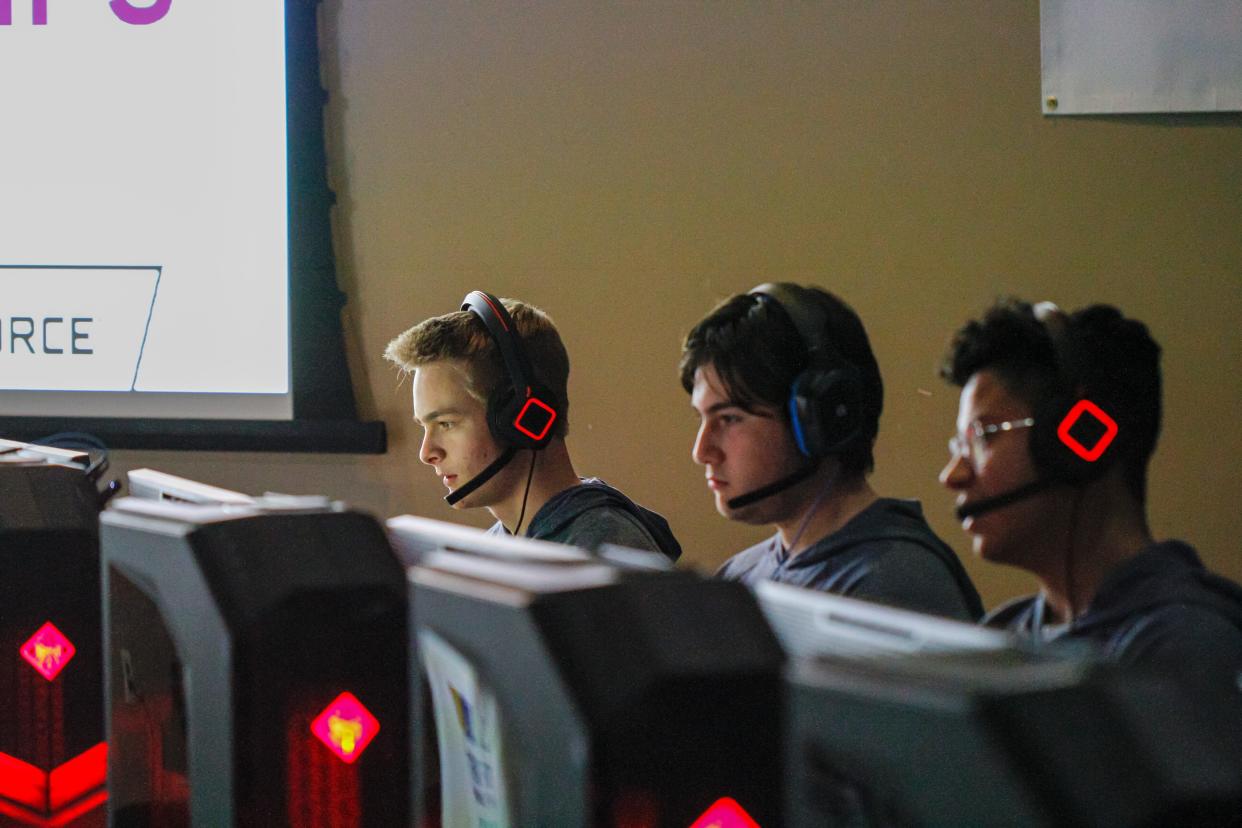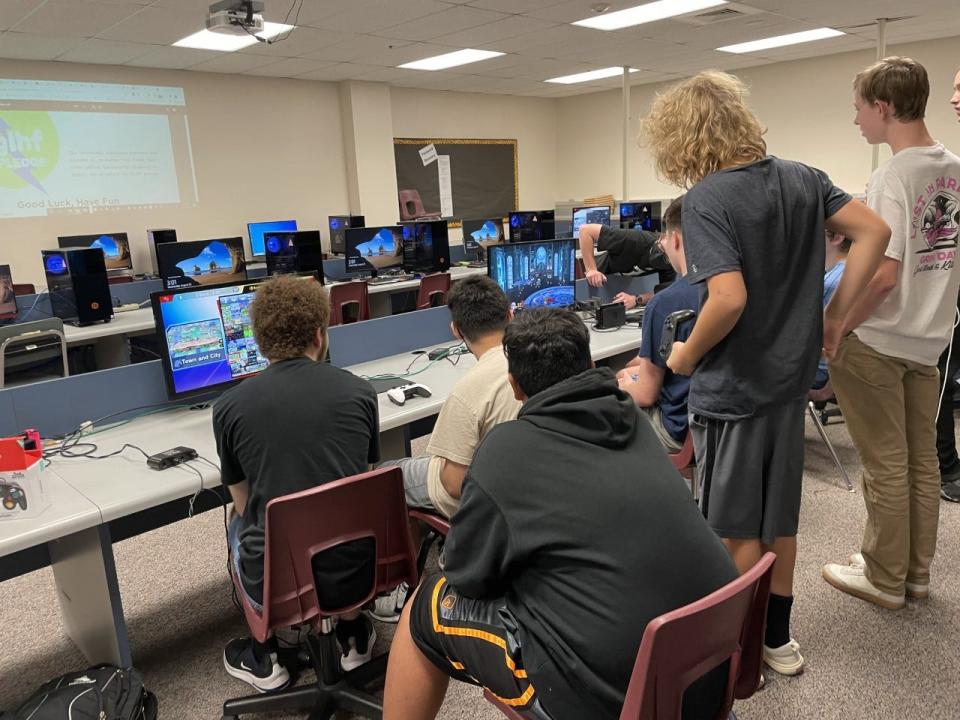Arizona high school esports competition sees change of season, continued growth

Arizona high school esports competition is undergoing a big change.
This school year, esports will be played in the spring, with an exhibition season being played in the fall instead of a regular competitive season. The AIA also announced a new partnership with Playfly eSports in May after choosing not to renew its contract with PlayVS.
Esports is a sanctioned sport overseen by the Arizona Interscholastic Association.
"This decision was made to align esports with our traditional sports, in that there would be one championship season per year," said Brian Bolitho, AIA Chief Business Development Officer, in an email to the Republic. "Fall is an opportunity for schools and students to get into esports and sharpen their skills in preparation for the spring championship season."
Robert Laplante, head coach of Mesa Desert Ridge High School's esports team and member of the AIA eSports Advisory Committee, said the new partnership will help propel Arizona high school esports further grow.
"The three games, League of Legends, Rocket League and Smash Bros probably has 2,000 students playing statewide," Laplante said. "(Playfly) is more of a esports student based company than just a business."
For the students, having the new partnership between the AIA and Playfly will allow for the fall season to serve as a time for exhibition matches and extra practice.
Former Goodyear Millenium high school student Andrew Orlando believes the new rules will benefit students.
"That is definitely one of the biggest benefits is being prepared, like, 'OK, so this is how we're gonna do this, this is how were going to run going into the season,'" Orlando said. "It allows students to get that synergy going and get them more heavily prepared for the spring season."
With the season being moved to the spring, the fall will be used as a time to recruit and look at other teams performances in the past.
Previously, Orlando said, Millennium's team would not know who it was going to play until the day of matches. Now, with the new partnership, the schedule will be released in full before the season begins, allowing teams to better prepare themselves for matches.
Currently, some school districts in Arizona are beginning to push esports more than others, with more than 106 high schools across the state participating last year.
This year, it will cost $1,800 for esports teams to participate as a part of the new partnership. The $1,800 is a flat fee for three years and is paid by the school. PlayVS used to charge per student.
At Desert Ridge, Laplante said, there are 30 to 40 students on the roster, one of the larger teams in the state.
"Since this is a part of athletics, esport kids will pay a $100 athletic fee," Laplante said. "My athletic director or athletic department will then put that money toward the fee, so essentially the kids pay for their fee."
Lukas Sheets, head coach of Millenium's eSports team and member of the AIA eSports Advisory Committee, hopes that with the new partnership, esports can continue to expand and prepare students for the college level of play.
"I think the goal is to keep things competitive, and legitimate and to try to emulate what we see at the college and professional levels as best we can, so that high school esports can be a place where the students can seriously train and get ready for that college level or professional level," Sheets said. "Because this is more than just a video game club, where they just get together and play recreationally it is a serious competition and our goal is to get these kids college or career ready.."
Orlando, who played for Sheets in high school, earned a full-ride scholarship to play esports at Pace University and says that the college level of competition is a lot tougher than high school.

"At this level, people understand more about the actual competitive scene, whereas in high school, it can be people playing for fun most of the time, or just weren't into the competitive scene," Orlando said.
With the new partnership, the season will be longer as well, beginning in February and having a championship at the end of the season, similar to sports like basketball and baseball.
"Its pretty exciting to see how it's growing and changing from what it was when I first joined," said Chandler Valley Christian Rocket League captain Ryan Bastic. "A big thing that I like is that the season is getting longer and that there is a more competitive feel to it."
Valley Christian Smash Brothers Captain Luke Morton added: "It creates excitement for the players and really offers a lot that people don't see as far as playing video games goes because there's that aspect of working as a team, communicating, practicing effectively and then growing with your teammates."
John Hunsaker, Valley Christian head coach and member of the AIA eSports Advisory Committee, said the new system is more "stable" and makes esports feel like a more "formal competition" with better structure.
With the new partnership and introduction of a longer season, Valley Christian believes it can better promote their matches to its audience and attract more people to esports.
"I think it'll help a massive amount with outreach and getting our name out there, because we'll be able to advertise it so much more effectively," Morton said. "Being able to tell not only the teams, but the audience and the other supports when we're playing and what times is very helpful."
This article originally appeared on Arizona Republic: Arizona high school esports teams excited for new season, partnership

